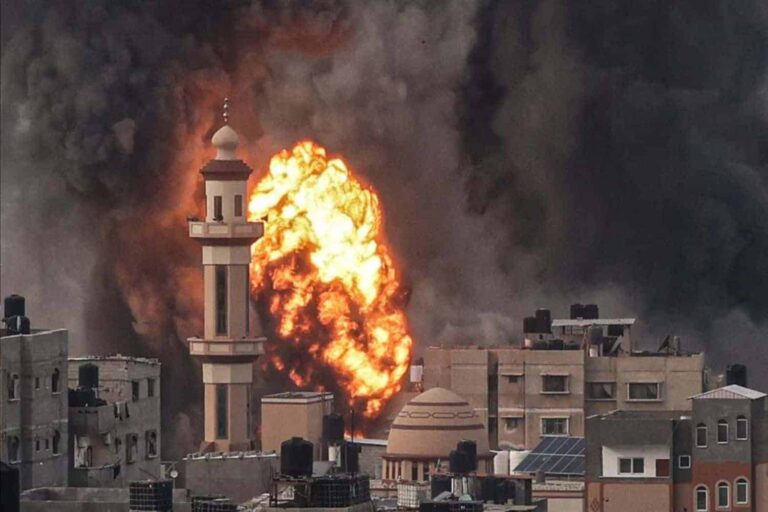This groundbreaking legal battle deserves attention: South Africa has taken Israel to the International Court of Justice (ICJ), accusing it of genocide in Gaza. If successfully prosecuted under the Genocide Convention of 1948, it would mark a historic first. On the world stage, this is monumental! Let’s chat about this unprecedented case and its potential to reshape history.
South Africa isn’t messing around. They’ve submitted a whopping 750 pages of arguments and over 4,000 pages of exhibits and annexes. That’s a lot of paperwork! But what’s it all about? Well, they’re saying three main things:
- Israel’s actions in Gaza amount to genocide
- Israel has failed to prevent and punish genocide
- Israel has incited others to commit genocide
It’s heavy stuff, I know. But we must understand what’s happening.
Context of the Case
South Africa’s President, Cyril Ramaphosa, is standing firm behind this case. He’s confident they can prove Israel’s genocidal intent. It’s not something that happened overnight, though. South Africa has been building this case for a while. They filed their initial 84-page application on December 29, 2023. That’s when things started rolling.
Israel’s Response and Deadlines
Now, Israel isn’t taking this lying down. They’re pointing fingers at Hamas, saying they’re responsible for the high number of civilian casualties in Gaza. It’s a complex situation, for sure. Israel has until July 2025 to submit their counter-memorial. That’s quite a while away, but in legal terms, it’s just around the corner.
Interim Measures and Emergency Orders
South Africa isn’t waiting around, though. They’ve approached the ICJ four times already, asking for interim measures to stop Israeli attacks on Gaza. The ICJ has issued some emergency orders in South Africa’s favor, but sadly, they haven’t had much impact on Israel’s actions. It’s frustrating, I know, but that’s the reality we’re dealing with.
Groundbreaking Advisory Opinions by ICJ
This isn’t the first time the ICJ has looked at Israel’s policies. In July, they gave an advisory opinion on Israel’s actions in the Occupied Palestinian Territory (OPT). They found some pretty serious stuff:
- Racial segregation
- Apartheid
- Violations of international law
They even declared Israel’s occupation illegal. That’s a big deal in the world of international law.
Global and Historical Implications
This case could set a huge precedent. It’s not just about South Africa and Israel – it could change how we handle cases of genocide and hold countries accountable on a global scale. It’s making us all take a hard look at Israel’s policies in Gaza and the OPT.
South Africa’s Stance and Solidarity
South Africa isn’t shy about where they stand. Their presidency has made it clear they’re standing with Palestinians. They’re calling out Israel’s actions and reminding the world that we all have a responsibility to stop the humanitarian crisis in Gaza. It’s a powerful message.
“We have a global responsibility to halt the humanitarian catastrophe unfolding in Gaza.” – South African Presidency
A Case with Far-Reaching Impact
So, there you have it, friends. This case is a big deal. It’s not just about two countries – it’s about how we apply international law, how we define genocide, and how we hold countries accountable for their actions. Whatever the ICJ decides, it’s going to have a huge impact on the world stage. Let’s keep our eyes on this one – it’s history in the making

